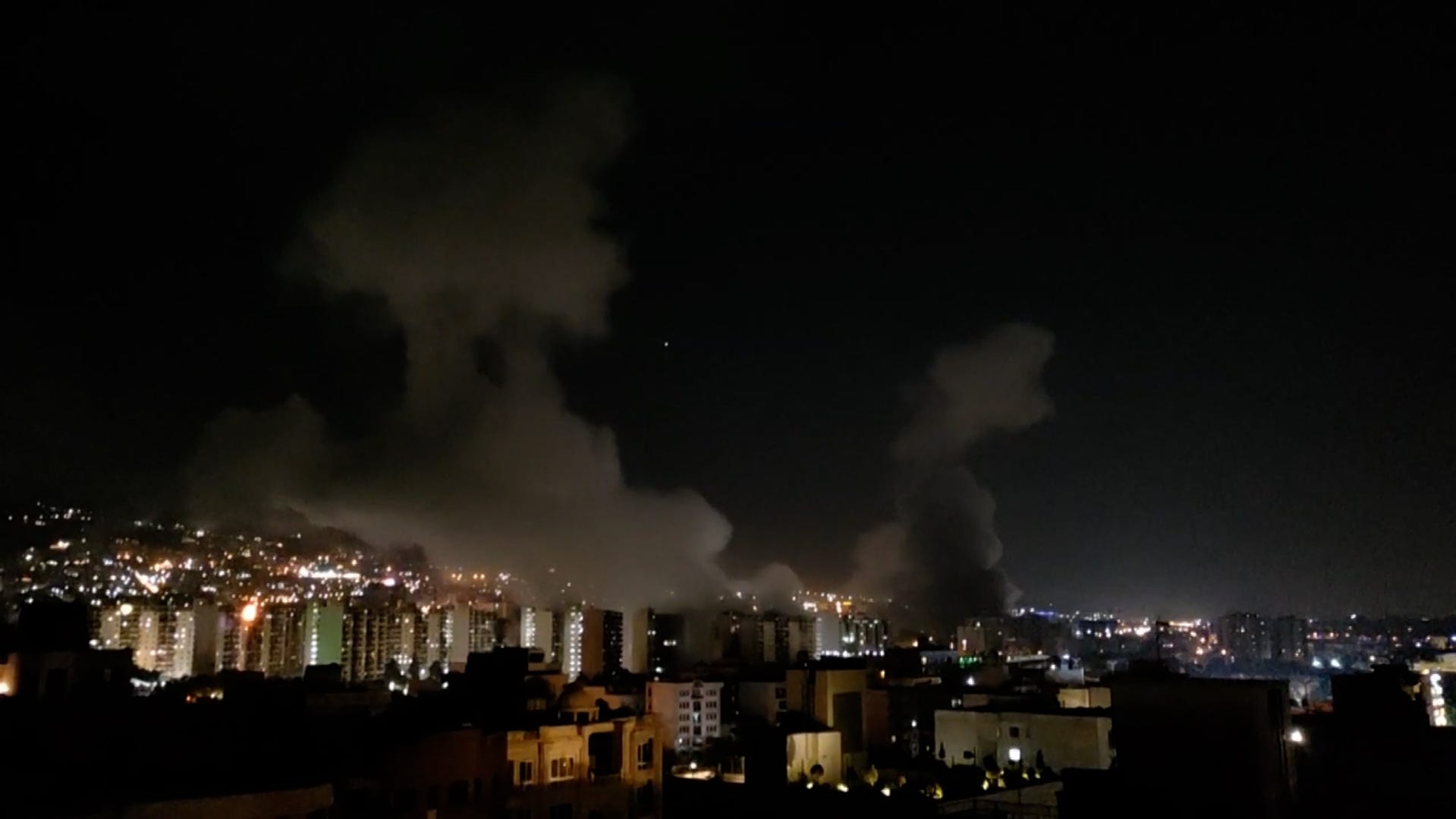What we know about Israel's attacks on Iran's nuclear sites − and Iran's drone response

Senior Iranian regime officials. Nuclear scientists. The uranium enrichment facility in Natanz and surface-to-air missile systems in Tehran. These were among the targets Israel struck June 13 as part of a wave of attacks on Iran.
Now Iran has launched retaliatory drone strikes on Israel, according to Israel's military, hours after Prime Minister Benjamin Netanyahu said Israel had begun an operation aimed at rolling back Iran's "threat to Israel's very survival."
The Israel Defense Forces said that Iran launched more than 100 UAVs toward Israel and that it was working to intercept them. Iran has not confirmed its counterattack, but it follows what Israel called a preemptive strike on Iran's nuclear program and other military targets, including senior officials such as Gen. Hossein Salami, head of Iran’s Islamic Revolutionary Guard Corps.
Netanyahu said Israel's offensive will last "as many days as it takes."
Iranian Supreme Leader Ayatollah Ali Khamenei confirmed several of his nation's senior military commanders and nuclear scientists were killed in the attacks, which struck parts of Iran's capital, Tehran. Khamenei warned that Israel had "prepared a bitter fate for itself."
President Donald Trump urged Iran to make a deal "before there is nothing left" and said on his Truth Social platform that Israel had access to the United States' "lethal military equipment."
Here's what you need to know about Israel's attacks on Iran − and what might happen next.
Why is Israel attacking Iran now?
Iran's rulers have been pledging to destroy Israel ever since Iran's Islamic Revolution in 1979. Netanyahu has long argued that Iran can't be trusted and that Israel would eventually need to attack Iran's nuclear sites to prevent it from obtaining a nuclear weapon. Although Iran insists its nuclear program is for civilian energy purposes only, the International Atomic Energy Agency, the United Nations' nuclear watchdog, recently concluded that Iran was very close to reaching the 90% uranium enrichment level required to build a nuclear weapon.
Iran has also for years militarily and financially supported regional militia groups, including Hezbollah in Lebanon, Houthi rebels in Yemen and Hamas in Gaza, that have pressured or attacked Israel on multiple fronts.
Israel attacks Iran. Iran strikes back: What's the latest?
The Israel Defense Forces said more than 200 fighter jets struck dozens of targets in Iran, including what it called the "hideouts" of senior operatives in Iran's military leadership. In addition to IRGC chief Salami, the attack killed Iran's highest-ranking military officer, Mohammad Bagheri, and Gholamali Rashid, its armed forces’ deputy commander. Iranian state media said at least six people had been killed and 20 wounded.
Iranian state TV images and footage showed apartment buildings and cars on fire in Tehran. The IDF said it damaged an underground area of Iran's uranium enrichment facility at Natanz, a district in central Iran, that contained a "multi-story enrichment hall with centrifuges, electrical rooms and additional supporting infrastructure."
The IAEA confirmed that at least one strike hit the Natanz nuclear site. The nuclear watchdog said in a statement that it has found "no elevated radiation levels" at the facility.
Israeli media reported that Iran's drones were being intercepted over Jordan and elsewhere. There were no immediate reports of damage in Israel, and while schools and gatherings were canceled and Israelis were told to stay near bomb shelters, the country's Home Front Command lifted an order to seek shelter.
Was the U.S. involved in Israel's Iran attack? What about diplomacy?

In his statement announcing the attack, Netanyahu thanked Trump for "his leadership in confronting Iran's nuclear weapons program." Secretary of State Marco Rubio acknowledged the attack in a statement and asserted that American forces "are not involved in strikes against Iran."
In fact, Trump told reporters at an event this week that he did not want Israel to strike Iran while a nuclear deal was still on the table. Trump's Middle East envoy Steve Witkoff had been set to meet with Israeli officials before attending a sixth round of nuclear talks with the Iranians in Oman over the weekend.
Those talks now seem in doubt.
"These developments eventually could prompt Iran to try to rush for a bomb," wrote Jonathan Panikoff, director of the Atlantic Council think tank's Scowcroft Middle East Security Initiative, in a blog post.
Trump was leading a National Security Council meeting June 13.
What has been the global reaction to Israel's strikes on Iran?
Multiple Arab countries issued statements of condemnation. Saudi Arabia's foreign ministry described Israel's attack as "heinous" and said the international community bears "a great responsibility to halt this aggression." Oman, which has been hosting the nuclear talks between the United States and Iran, called the attack "reckless."
In Europe, German Chancellor Friedrich Merz, who has criticized Israel in recent weeks because of its actions in the war in Gaza, said Israel has a right to "defend its existence." Merz increased protections for Jewish institutions in Germany.
Oil prices surged after the attack amid fears of a supply disruption. Stock markets in Asia and Europe traded lower. Wall Street stock futures also traded lower ahead of the market open.